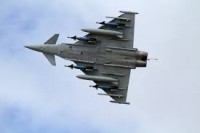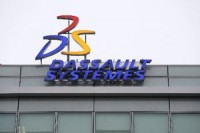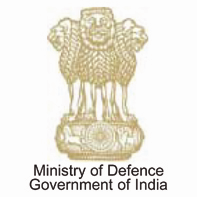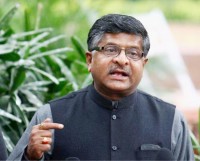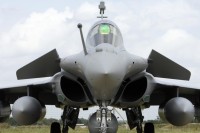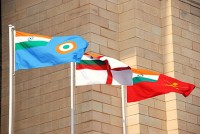Asking Beijing to reciprocate India’s commitment towards ‘One China’, the government today asserted that Arunachal Pradesh is an integral part of the country and will continue to remain so.
New Delhi has recognised Tibet as a part of China and Beijing should reciprocate by recognising Arunachal Pradesh as a part of India, Union Minister of State for Home Kiren Rijiju said.
“We can raise the issue but we cannot force them. India has been raising the issue (of Arunachal as a part of India) with China in various forums,” he told reporters reacting to China’s recent move to show the border state as a “disputed territory”.
“Vice President Hamid Ansari raised it when he visited China recently and External Affairs Minister Sushma Swaraj raised it when the Chinese Foreign Minister had visited New Delhi,” he said.
In his maiden trip to his home state after becoming a minister in the Narendra Modi government, Rijiju said the NDA government was giving priority to link the development projects in Arunachal Pradesh as strategic.
“We are trying to convert the normal development project into strategic one for its timely implementation and easy flow of funds. We must take holistic approach for all round development of this land-locked state,” he said.
“No development projects will get the desired result unless Centre as well as state government work in close coordination,” he said and urged the Nabam Tuki government to be partner with the Centre for all-round development.
“State government should comply with all central guidelines while implementing Central projects in the state and must ensure that no funds are siphoned off,” he said.
Rijiju said the Home Ministry had submitted a proposal of Rs 5,000 crore to the Finance Ministry for the development of the border areas along China, from where a large number of migration has been reported of late due to lack of basic infrastructure which has created a vacuum along the border.
He said the Ministry has sent a proposal of Rs 707 crore to the Union Agriculture Ministry to initiate various projects in Arunachal Pradesh.
Beijing asked to reciprocate India’s commitment to “One China”
UK ministers push for Eurofighter on first India visit after NDA win
Two of Britain’s most senior government ministers begin a two-day visit to India on Monday hoping to open up opportunities in the defence and infrastructure sectors, the first such trip since Prime Minister Narendra Modi’s May election win.
The arrival of George Osborne, Britain’s finance minister, and Foreign Secretary William Hague, is the latest in a series of high-profile visits by foreign governments keen to build strong relations with Modi and to position themselves for a possible further opening up of India’s defence industry.
Britain’s economy, the world’s sixth largest, is expanding at one of the fastest rates in the Western world. But the country is weighed down by large public debts and Prime Minister David Cameron has said it needs to forge closer links with developing economies such as India’s to secure its future.
London is hoping that a stalled deal for India to buy 126 French Rafale fighter jets may yet collapse, opening the door to a potentially new arrangement involving the Eurofighter jet, which is partly built in Britain.
It also wants British firms to help India develop new cities and districts along a 1,000 km (600 mile) corridor between Mumbai and Bangalore.
“I believe a stronger relationship with Britain will help deliver the new economic policy of the Indian Government,” Osborne will say in a speech during the visit, according to advance extracts released by Britain’s Foreign Office.
“Prime Minister Modi is seeking more investment in India’s economy – and I want British companies to provide it, and the British Government to support it.”
The two men, both members of Cameron’s ruling Conservative party, are expected to visit Mumbai and Delhi, and to hold meetings with Modi as well as with India’s finance and foreign ministers and with business leaders.
Osborne is expected to use the trip to announce research and development investment in Britain by car giant Mahindra and pharmaceutical company Cipla to the tune of 20 million pounds and up to 100 million pounds respectively.
Hague will say Britain is increasing the amount of money available for Indian student scholarships and wants to further develop educational links. A long-festering tax dispute involving Vodafone is also expected to be on the agenda.
The visit could have an impact on Britain’s political scene. Cameron is up for re-election next year and his Conservative party is anxious to woo the country’s Indian diaspora, which Hague before his trip estimated was 1.5 million-strong.
In 2013, Britain exported goods and services worth 7.7 billion pounds to India and imported goods and services from India worth 8.8 billion pounds.
Britain, India’s former colonial power, is the third biggest investor after Singapore and Mauritius.
Rafale deal is on ,just a little delayed
India’s most awaited defence deal for 126 combat planes, expected to be worth nearly `1 lakh crore, may take longer than expected to materialize.
Just over a month after the Modi government got into the saddle, it has now emerged that the Medium Multi Role Combat Aircraft (MMRCA) tender for which India selected the French Rafale aircraft from the Dassault Aviation stable is still in the works and would take at least another six months to be ready.
However, even readying all papers by December this year would be no guarantee that the contract would be signed within the current fiscal that ends on March 31, 2015, say senior bureaucrats in the Defence Ministry. “The signing may not even happen within this financial year,’’ a top bureaucrat said, noting there were at least three reasons due to which the seven-year-old tender had not materialized into a successful deal.
It has been more than two years, since Rafale beat its closest competitor Eurofighter Typhoon from the consortium then called EADS Cassidian. When French Foreign Minister Laurent Fabius was in Delhi last week, the Indian response to his efforts to push the deal through was lukewarm, say officials.
Prime Minister Narendra Modi’s likely stopover in Frankfurt and the reported request from Germany for a summit meeting with Chancellor Angela Merkel has further fuelled suspicions that the Germans, who were spearheading the Typhoon Campaign in the MMRCA tender, were partially successful in convincing Modi to rethink the selection of French Rafale.
A senior official said the reason for lack of enthusiasm on India’s part to Fabius’ pitch was not due to a rethink, but due to other factors. The most important being the long-winding negotiations, particularly on the life cycle costs aspect of the Rafale offer, over which former defence minister A K Antony had raised a controversy in February this year.
During the Defence Exposition in Delhi, Antony had said that delays (in the UPA regime) over Rafale deal was due to ‘‘certain issues’’ with Rafale’s life cycle costs, which would be the expenditure incurred by India on operations and maintenance if its flies the Rafale plane for 40 years after induction, along with the price of the planes. Since then, India and France—particularly Dassault Aviation and Hindustan Aeronautics Limited—have concluded their part of the negotiations as partners in the venture. Under the tender provisions, Dassault Aviation will manufacture the first 18 of the Rafale for IAF, while HAL will build the remaining 108 in India.
Senior IAF officers, who have dealt with the Rafale acquisition process, pointed out that the delays on the life cycle costs negotiations were due to the fact that this was the first-ever Indian defence deal in which these costs were being worked out. It had also been made mandatory to calculate the life cycle costs before the deal is signed.
‘‘Life cycle cost is an important determinant in deciding with whom the contract would be signed. Even at this stage, the tender process provides for going back to the negotiating table with the second lowest bidder,’’ a former officer, who did not wish to be identified, said. But Typhoon’s costs are prohibitively higher than Rafale, he added.
Another factor troubling the Indian defence ministry is the cost of the MMRCA. When the approval for procuring the 126 aircraft was given by the previous NDA regime in 2000, the cost pegged was `42,000 crore.
‘‘After one-and-a-half decade of that approval, it is but obvious that the cost of the planes would increase and it could in fact double, considering inflationary factors and the Rupee-Euro conversion. Though India has benchmarked the likely price of the planes and the cost increase has been factored in, the necessary approvals for budgetary provisions for the planes would need a fresh sanction,” a senior IAF officer admitted. That would mean the new Cabinet Committee on Security (CCS) under Modi would have to consider the fresh cost and give a nod to it. That too could take about a month to three months, after the fresh price, based on the benchmarked price, the commercial bids from Dassault Aviation and the cost negotiation are taken into account. But, the CCS meet to consider the MMRCA price is still far away, officers said, noting that Indian government and Dassault Aviation have not even reached the cost negotiation stage yet.
Last, but not the least, this fiscal’s 2.24 lakh crore interim defence budget, especially the89,588-crore capital expenditure for new assets, has not factored in the 15 per cent down payment that needs to be immediately made if the MMRCA deal is inked. Considering the cost of the MMRCA deal could go up to 1 lakh crore, that would mean at least15,000 crore of down payment. But the IAF has got only `20,507 crore for its capital expenses this fiscal, under the interim budget.
Though the Defence Ministry has sought a 25 per cent increase in the defence budget that is to be presented by Finance and Defence Minister Arun Jaitley next week, senior ministry officials admitted that they were only expecting a marginal hike to cater to inflation. Unfortunately for the IAF, already about 60 per cent of the capital expenses provided for it this fiscal would go towards committed liabilities, such as contracts it had already signed for in the previous years and it would be left with just about 40 per cent of the funds for new contracts.
Radars & Sensors to check China intrusion
The Centre has initiated a major move to give security infrastructure along the strategically critical India-China border a significant boost. As part of the plan, the government has agreed in principle to put in place state-of-the-art powerful radars and high intensity thermal sensors to check Chinese intrusion both by air and land routes.
Sources said the sophisticated thermal sensors can help detect movement of troops and vehicles from at least a few kilometres even in the dark and transmit signals to a control room or an outpost.
Intrusion by Chinese forces along the border has remained an area of concern for the security establishment.
After the NDA government assumed power at the Centre, it has attached high priority to securing the borders.
Hectic deliberations have been going on among multiple agencies and ministries within the government over the last few days over what steps should be initiated.
One of the issues flagged by security agencies during the meetings was the lack of technological equipment close to the border that can help provide an advance warning of possible intrusion attempts by the Chinese.
Sources said that a blueprint for installing the hi-tech equipments was being worked out.
“The territory along the Indo-China border is extremely hostile and it is virtually impossible to patrol the region on foot. So we have to rely on technology,” a government functionary said.
The Angel Investing Wishlist From Budget 2014 : Pls Fix
[Editorial Notes : The new government will soon announce Budget 2014 and we certainly would like to believe that the new budget will also focus on giving wings to India’s entrepreneurial energy. V.Shankar, Angel Investor at The Chennai Angels shares key points that the new government should definitely fix.]
Angel Investor Groups play an important role in the promotion of Entrepreneurship in the country. In addition to capital, they provide mentoring, access to networking and access to market, and these are inputs that a startup desperately needs.
Angel Investing has been adversely impacted by well known recent regulatory changes. These need to be reviewed to re-energise Angel Investing and promote entrepreneurship.
CWC to provide storage to Central Medical Services Society
Central Warehousing Corporation (CWC) signed a MOA with the Central Medical Services Society (CMSS), an institution under the Ministry of Health and Family Welfare, GOI, for providing warehousing facilities including for walk in chambers and walk in freezers for storage of drugs, pharmaceuticals, vaccines and other health sector goods.
CWC will provide 2.30 lakh sq. ft. of warehousing facilities at 21 locations in 20 States and 1 Union Territory and depending upon additional requirement, the facilities will be augmented.
The MOA, valid initially for five years, effective from July 1, 2014 was signed by B B Pattanaik, Managing Director, CWC with Navneet Verma, Director General & CEO, CMSS on 30th June, 2014 in the presence of Functional Directors and senior officers of both the organizations.
Arun Jaitley says armed forces’ demands for more funds to be accepted in Union Budget
The “slow pace” of acquisition of weapon systems is a matter of concern and the new government will work towards “expediting” the procurement process to meet the requirements of the armed forces, Defence Minister Arun Jaitley said here today.
After attending the Naval Commanders’ Conference, he hinted that demand of the armed forces for more funds in the Union Budget was likely to be accepted as the “entire resource of the country, notwithstanding various pressures, has to make available a significant amount for those in defence of the country”.
“The key subject matter of concern appears to be the slow pace of acquisition of whatever equipment and assets are required. The Navy has highlighted that…. Hope of the forces is that their requirements should be fulfilled and the process should also be expedited. The effort of the government would be to work in that direction,” Arun Jaitley said.
Talking to reporters after a detailed interaction with the top brass of the Navy at the commanders’ conference, the Minister said, “There are several decisions in the pipeline and I think there is a good case for these processes to be expedited.”
The Navy has several acquisition projects stuck for many years due to slow procurement process, including the Rs 6,000 crore 16 multirole helicopter project and the acquisition of torpedoes for the Scorpene submarines.
Its tender for acquiring six new submarines under Project-75 India, estimated to cost over Rs one lakh crore, is also stuck as the government has to alter a 1999 decision to build all future submarines only indigenously.
The Navy is also waiting for final clearance to acquire 16 mine countermeasure vessels from a South Korean firm which has been stuck after complaints were filed against the fairness of the process under the previous government.
On whether the new Government will do a full review of the defence acquisition process to expedite procurements, Jaitley said, “I would not use the word full review but even under the present procedures also, expediting processes is still possible. Every file need not move up and down indefinite number of times.”
GovTech India : The New Government is Serious About These 3 Things
India’s new IT Minister Ravi Shankar Prasad spent a couple of hours listening to product startups and folks from ISPIRT yesterday. Earlier in the day, he spent time with the technology services companies.
The 3 key takeaways? Government is serious about
Broadband: The National Optical Fiber Network, Local manufacturing of electronic goods and E-governance reforms.
Read More : http://www.nextbigwhat.com/3-things-technology-new-government-serious-297/
MOD raises concerns over the cost escalation in jet deal
As the French foreign minister Laurent Fabius met Indian political leadership, including prime minister Narendra Modi, pressing for sealing the multi-billion Rafale combat aircraft deal, New Delhi has raised serious concerns over the cost escalation of the fighter jet deal. Struggling to pay the heavy cost of the deal, the ministry of defence (MoD) is considering an option of down-sizing the deal from 126 to 80 fighter jets.
According to officials, who are privy to the development, defence ministry has asked the French government to revise the price structure because the deal has gone much beyond the expected lines. And during course of negotiations with the Dassault, which manufactures Rafale jets, the defence ministry has been asking for price revision. Due to difference of opinion, the cost negotiation committee, which was set up in February 2012 to work out the modalities for the deal, has not been able reach conclusion and the committee is yet to submit its report to the ministry.
Officials claim that in 2007, when the tender was floated, the cost of the programme was $12 billion. When the lowest bidder was declared in January 2012, the cost of the deal shot up to $18 billion (Rs1.08 lakh crore). And now with inclusion of transfer of technology, life cycle cost and creating assembly line, the deal has virtually cross whopping $20 billion.
A top official told dna that if the government signs the deal in the next couple of months, it has to pay advance payment of at least $1.5-2 billion (Rs.9- 12,000 crore) to Dassault. And for the newly-elected BJP-led NDA government will have to compromise on other defence equipment, as major chunk of defence budget will go in for the advance payment. And it is also believed to understand that new government is also not comfortable with the life cycle cost method adopted by the previous UPA-II government and even a senior BJP leader and former finance minister Yashwant Sinha had objected to the life cycle criteria.
“Cost escalations and disagreements over production sharing with Hindustan Aeronautics Limited(HAL) has led to the delay in freezing the contract. French have been asked to re-look at the price factor,”said an officer.
IAF officials maintain even if the deal is signed by the end this year, first lot of Rafale aircraft will arrive India by 2017. And by the time, IAF has to phase out its MiG 21 squadrons.
The air force is seeking to replace its ageing MiG-21s with a modern fighter and MMRCA fits between India’s hig-end Sukhoi-30MKIs and its low-end Tejas LCA lightweight fighter. The IAF has a sanctioned strength of 45 fighter jet squadrons. However, it only has 30 squadrons operational as old aircraft have been retired.
Eighteen of the 126 planes will be purchased directly from Dassault, while Hindustan Aeronautics Limited will manufacture the other 108 under a licence, at an upcoming facility in Bangalore.
Kaspersky Internet Security rated 1st stood up to an independent 6 month test and took 1st place
Kaspersky Internet Security was rated as the best protection solution following an endurance test carried out from September 2013 to February 2014 by the experts of the independent laboratory AV TEST. Kaspersky Lab’s product achieved top scores for malware detection while maintaining a lower system load than any other tested product.
AV-TEST’s endurance test is an extended study in which different internet security suites are tested over three two-month periods on three different operating systems — Windows XP, Windows 7 and Windows 8.1. This testing method helps to find the best solution by analyzing its effectiveness on a long- term basis, unlike traditional tests that can only demonstrate the capabilities of the protection at a given moment in time.
The experts evaluated 24 security suites from different vendors in three categories. The first category, Protection, tested the combined ability to detect a reference set of malware and to identify new pieces of previously unknown malware. The second one, System Load, demonstrates impact of the security suite on system performance and measures delays in the installation or execution of programs, website responses and data downloads. The last category, Usability, assesses the correct identification of legitimate programs and websites.
Kaspersky Internet Security suite boasted the best results over the six months of testing and was able to score 17.8 of a maximum possible total of 18 points. It got 6.0 out of 6.0 points in Usability and Protection categories, detecting 100 % of 60,000 known pieces of malware and identifying all of about 400 samples of zero-day malware in a real-world test conducted by visiting recently infected websites and opening suspicious e-mail attachments. Furthermore, Kaspersky Internet Security also got 5.8 out of 6 in System Load, beating its nearest rival by 0.3 points.
“Users of modern security suites don’t want to be disturbed either by viruses or by antiviruses. The solution’s ability to avoid excessive drain on system resources and avoid false positives is just as important as its primary function of detecting and neutralizing malware. Kaspersky Internet Security’s impressive results in this test reflect the optimal comfort level our customers enjoy in addition to unquestionable security for their systems,” commented Oleg Ishanov, Director Anti-Malware Research, Kaspersky Lab.



